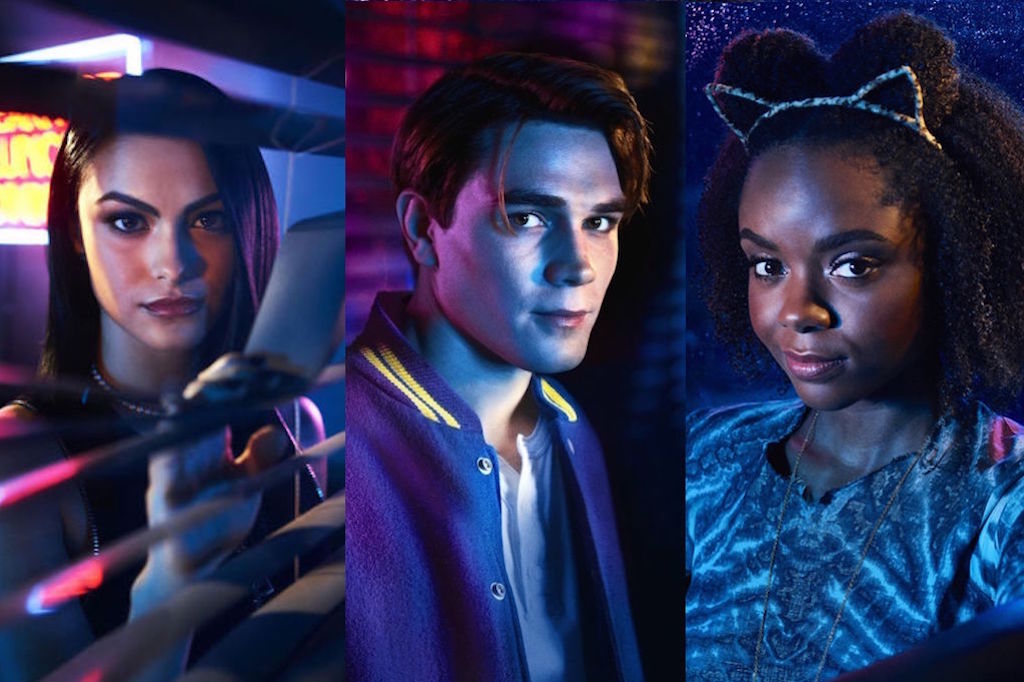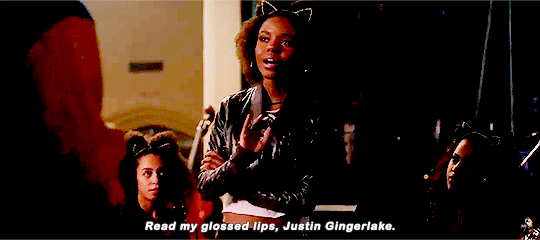How ‘Riverdale’ Is Setting A New Benchmark For Diversity In Teen TV
We need more shows that school the Archies of the world.

In the 2000s, I watched teen TV dramas religiously. My friends and I watched the high school romances of Dawson, Joey and Pacey. I watched Marissa fall for bad boy Ryan as indie-geek Seth and popular girl Summer forged a love story of their own. I watched as estranged brothers Nathan and Lucas Scott played out their rivalry on the basketball court. I watched as friendships were formed and friends fell out. But the heartthrobs and misfits who filled my television screens as a teen didn’t reflect my experience.
Most of these shows were set in the US — a country I knew from my own experiences to be diverse and multicultural. Yet on these shows, characters and storylines were dominated by whiteness. I didn’t realise at the time that I was always searching for representation. And I only seemed to find it this year, as a full-fledged adult, in Riverdale. In this Netflix drama, teens of colour — particularly women of colour — are given the representation they deserve and expect in 2017.
A Seat At The Table
When I first heard about Riverdale it was described to me as a Twin Peaks meets Gossip Girl teen drama/murder mystery. It was also somehow based on Archie comics — the comic series that was spawned in 1940s small town middle America. I didn’t really believe the show would work. Who would have? If I had been told at the time that Riverdale would manage to do all of this, while providing representation to diverse characters and have powerhouse women of colour I would have believed it even less.
On paper, Riverdale, sounds like basically any teen drama you might have watched ten years ago. There’s a high school, an unsolved crime, a group of teenagers with a football playing heartthrob and two cheerleading love interests. But it’s the way the show purposefully fills these narratives with a strong cast of people of colour in non-stereotypical ways that shows how representation can make standard formulas so much better.
Riverdale’s casting is race inclusive in a way that is different to most American teen shows. The show’s new girl and very quickly appointed ‘it girl’ whom everyone in Riverdale the town wants to befriend, Veronica Lodge is a young Latina woman played by Brazilian actress and dream woman Camila Mendes. Riverdale’s resident football jock, Reggie Mantle is played by Asian-American actor Ross Butler. And perhaps Riverdale’s most powerful depiction of people of colour in the show comes from the iconic, popular and desirable talented high school band Josie and the Pussycats comprised of three young Black women — Josie McCoy (Ashleigh Murray), Melody Valentine (Asha Bromfield) and Valerie Brown (Hayley Law).
What is common in the casting of all of these characters is that — save for Valerie — in Archie’s Comics they are all white or white-passing. Their diverse casting in Riverdale is intentional. The show’s executive producer, Roberto Aguirre-Sacasa, has spoken openly about how, as the son of Nicaraguan parents, representation was important to him. In an interview with CBR, Aguirre-Sacasa said, “If we’re going to do a show in the real world, it has to reflect the real world. And the real world is not 100 percent white”.
It seems obvious huh? The real world in the early 2000s wasn’t 100 percent white either, but shows rarely sought to create a show that made real world diversity visible. By choosing to be purposefully diverse in the casting of main characters, Riverdale sends a message to teens of colour: they are seen.
Being Heard
Riverdale not only recognises people of colour in its casting, but actively showcases their issues too. During a songwriting session with Archie in the episode ‘Body Double’, Josie, Melody and Valerie speak frankly about the struggles of WoC and marginalised people when facing white male privilege. Archie has recently discovered that in addition to being amazing at football and handy at his dad’s construction company, he can do a bit (note: little) with a guitar. Having learned about his recent “talent”, Archie assumes this means he can get in with the successful and already high school famous Josie and the Pussycats. That is until Josie schools him.
“No, no, baby, you don’t [get it],” Josie says. “Do you know why we’re called the Pussycats? Because we have to claw our way into the same room that you can just waltz into, so if you think you can write my experience…” Valerie then attempts to stop Josie — maybe because hurting the white male ego is still taboo in 2017 Riverdale — but Archie admits that Josie is right.

Later in the season, Archie is schooled again in ‘La Grande Illusion’ after he ditches his girlfriend Valerie (who is definitely hotter and cooler than him) to schmooze with the Blossoms and get a golden ticket to an exclusive music academy. Valerie asks Archie: “Wouldn’t you rather earn your place at that table, with your music?” — HEY SOLANGE, WE LOVE YOU. He doesn’t get it and retorts: “All the Blossoms are doing is opening a door for me.”
While it isn’t played out in the dialogue as explicitly as the first time, it’s made crystal clear that Archie is ignoring the privilege of having that door opened at all; a door that would be much, much harder for someone like Val. (Incidentally, Archie is incidentally played by a PoC himself — KJ Apa is half-Samoan, but on the show his character is white-passing.)
Exchanges like this in a mainstream television show is not something that even adult me takes for granted. In 2017, we are blessed with shows such as Aziz Ansari’s Master of None, Issa Rae’s Insecure and Donald Glover’s Atlanta; these are series created by people of colour to tell their stories without being mediated by the sensitivities of a largely white creative team. Yet there are still so many shows that don’t meaningfully engage with PoC representation at all (here’s looking at you Girls and Pretty Little Liars). It means something that Riverdale knowingly incorporate the stories of PoC as well as include direct discussion about why it is important — especially considering the show’s younger audience.
Television shows should be as diverse as the audience that watches them.
The race representation in Riverdale is by no means perfect. For example, while the high school jock Reggie is played by Asian American actor Ross Butler, he’s been given minimal character development. Reggie contributes to the outward diversity of the show, but isn’t provided much of a voice. (It’s just been announced that Reggie will be developed much more in the show’s second season, but the role will be recast).
The same could be said for Dilton Doiley (Daniel Yang) who, in the comics, is the smartest kid in the school. On Riverdale, he’s been provided a total of three or four scenes to show it. Much has also been said about the problematic portrayal of Chuck Clayton, the Black captain of the high school football team, in that spa scene. Essentially, Betty Cooper and Veronica find out that Chuck has been slut-shaming girls at Riverdale High and decide to take their revenge by tying him up in a spa and having Betty taunt him until he admits his crime.
This stereotyped and reductive portrayal of hyper-sexualised and predatory Black manhood and lack of critique on Betty Cooper’s privilege as a white woman is gross. Sadly, this all takes place in the same episode that so brilliantly handled Josie schooling Archie on white male privilege. It’s important that critiques of Riverdale and race representation more generally aren’t silenced.
The thing that I love most about Riverdale is the idea that, while I missed out when I was younger, teens (and a whole lot of adults) who tune into this show weekly are now provided with conversations like this. Diverse and non-stereotypical characters are talking about white privilege and identity. These conversations are rare, and not always perfect, but they are being had. And the more they occur, the more natural and nuanced they will become. Television shows should be as diverse as the audience that watches them.
–
Riverdale is on Netflix now.
–
Kamna Muddagouni is a writer and podcaster at ‘Can U Not?’ based in Melbourne. She tweets at @kamnamm.
